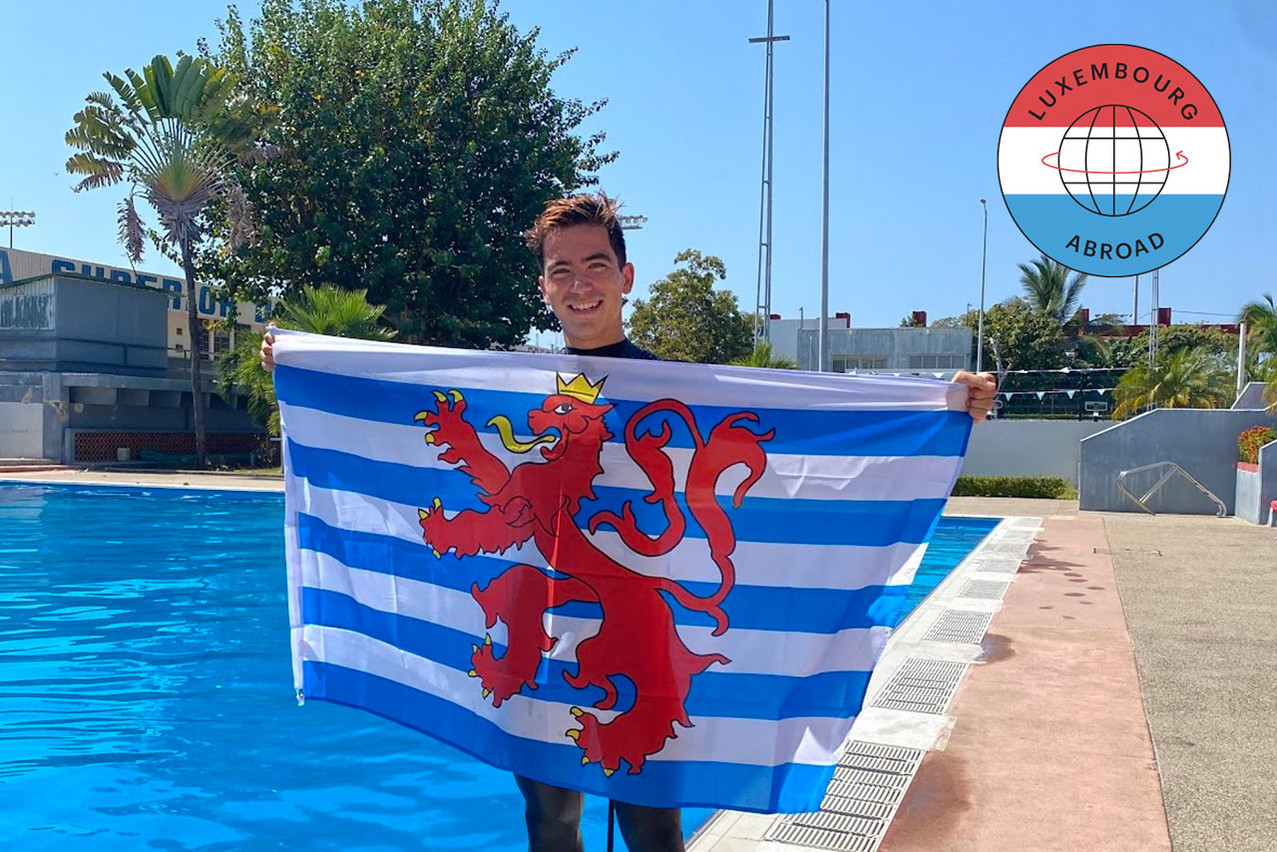Last weekend, Adrian Trömel competed in his first freediving competition in Acapulco, Mexico. It was the Olmeca Open 2023, organised by the International Association for the Development of Apnea (AIDA), which provides education and standards on freediving.
“As only the second Luxembourger to compete in freediving, and the first in the pool, I was both nervous and excited,” Trömel told Delano. “Nervous to see how I would do in the competition, and excited to play a small part in bringing the sport I have come to love to the grand duchy!”
The competition involved static apnea--a discipline in which a person holds his or her breath underwater for as long as possible, without swimming--in which Trömel managed five minutes and 13 seconds. He was also competing without fins, during which he swam 105m, and with dynamic bifins, reaching 123m.
“Tension and stress, whether muscular or mental, consumes energy and oxygen--precious resources when you’re holding your breath for two or more minutes and swimming under the surface,” Trömel explained. “Freediving is a sport where you learn to relax through these to be able to swim further and hold your breath longer safely.”
A highly disciplined training
Trömel began his freedive training in 2017. He wasn’t interested in scuba diving--too complicated, fewer liberties underwater with all that equipment.
The passion was sparked during his trip to South Africa, where some of Trömel’s friends were getting scuba certification, and he decided he’d just snorkel instead. “There was a freediver on the boat, and we were diving with sea lions. He was there to take pictures of the sea lions, and just watching him do his work was beautiful.”
Trömel added that most underwater photography is done by freedivers, in fact. The reason is that, as opposed to scuba diving, it’s possible to quickly chase a sea creature without worrying about depth, which can cause dangerous--even fatal--decompression issues for scuba divers.
Learning freediving involves theory--blending concepts like zen and yogic practices--to train the body to calm the heart rate and relax the body. Trömel said that, like most people, before training, he could hold his breath around 30 seconds; after just two hours of theory, he increased that time to over four minutes.
“It’s principally a mental sport of understanding what’s happening in your body and learning how to relax through that discomfort up to a certain limit,” he explained. “You’ve actually got a lot more oxygen and capacity to hold your breath for much longer than the discomfort that your body’s telling you.”
He got really serious about the practical training last November, doing so in places like France and Egypt. Through AIDA, he also found a tightly linked network. “It’s a tiny community around the world that welcomes you with open arms. It’s fantastic.”
Business-transferrable skills
Until end-2022, Trömel was chief growth officer at Hamilton Health Box, which built telemedicine-enabled primary care clinics for rural and under-served areas. Prior to that, he was a biodesign fellow at Texas Medical Center Innovation, through which he co-founded CNX Medical. He received his MBA from Rice Business - Jones Graduate School of Business, where he took an interest in the healthtech sector and where he’s also currently a management lecturer.
In 2022, he was also appointed as a Luxembourg foreign trade advisor, and he sees a lot of complementary aspects between Houston, Texas, and Luxembourg. Both are diversifying out of a legacy of industry in innovative ways, from healthtech to climate tech and more.
Although he couldn’t reveal more at the time of interview, he said he did have some other entrepreneurial ideas brewing. And he explained that the experience gained through diving will have an impact on this: “With freediving, you learn to deal with both literal pressure of the water around you, but also the mental pressure of knowing that right now and here, you can only rely on yourself. The only thing you can do is rely on your training and know what you need to do next.”
He added it’s no coincidence that many of the world’s top freedivers are also executive coaches.
And he’ll continue to push the limits in freediving: “I hope to continue competing, including doing some depth competitions to see how deep I can go, and to bring awareness to this growing sport in Luxembourg.”
